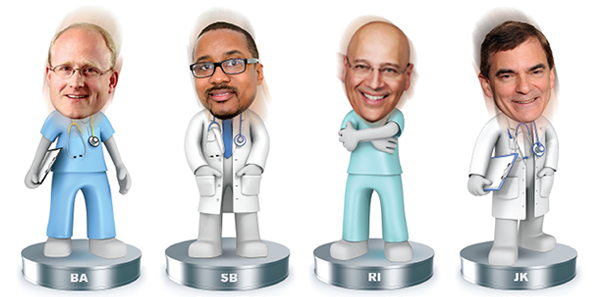
Editor’s Note: The ACEP Council hosted a Town Hall meeting on mergers and acquisitions on Oct. 24, 2015, in Boston. Here is Part 2 of our edited transcript of the discussion.
Explore This Issue
ACEP Now: Vol 35 – No 02 – February 2016Introduction
This is our Town Hall meeting and should represent a topic that is really important to the practice of emergency medicine, our specialty, and beyond: mergers and acquisitions. Many of us may not know a lot about this process and how it could impact us, but I think it’s time we discussed it so that we are all more informed about mergers and acquisitions in medicine. That’s why I titled this “Mergers and Acquisitions: The Medical Shark Tank.” I tried to get Mark Cuban; he still hasn’t responded to the request. I’ve asked Ricardo Martinez, who has a wealth of broad health care knowledge, to moderate this session.
—Kevin M. Klauer, DO, EJD, FACEP, ACEP Council Speaker (2013–2015), chief medical officer–emergency medicine and chief risk officer for TeamHealth, and ACEP Now medical editor-in-chief
Moderator

Ricardo Martinez, MD, FACEP, chief medical officer for North Highland Worldwide Consulting and assistant professor of emergency medicine at Emory University in Atlanta.
Participants

Brent Asplin, MD, MPH, FACEP, chief clinical officer for Mercy Health in Ohio
Savoy Brummer, MD, FACEP, vice president of practice development at CEP America in Belleville, Illinois, and chair of the ACEP Democratic Group Section
Ray Iannaccone, MD, FACEP, president of EmCare
Jay Kaplan, MD, FACEP, President of ACEP; director of the patient experience for CEP America in Emeryville, California; and a practicing clinician in the emergency department at Marin General Hospital in Greenbrae, California
RM: How are [emergency group] mergers funded?
RI: If your group is acquired, they’ll give you, in return for the group and the revenue stream that comes off of that, cash—which I think is the most common—stock, or both. For the company that’s buying it, they have cash they’re ready to pay you, or they borrow money from an institution to pay you, or in the case of stock, they’ll give you stock.
RM: They would have the money to invest as part of that company and then take the revenues as they come down the road.
RI: Right. Some people will want to sell part of the group. The classic private equity deal would be that the private equity firm would give you some of what might be 40 percent or 60 percent, and then in another three to five years, they decide whether they sell to somebody else or do an [initial public offering]. Doing that would be another opportunity for the owners of the group to get more money.
Pages: 1 2 3 4 5 | Single Page





No Responses to “Emergency Medicine Leaders Discuss Mergers, Acquisitions at ACEP15 Council Town Hall”